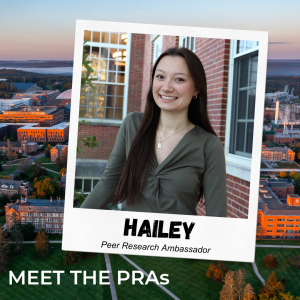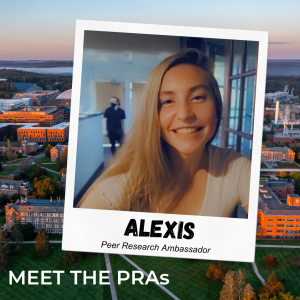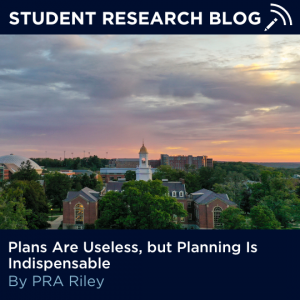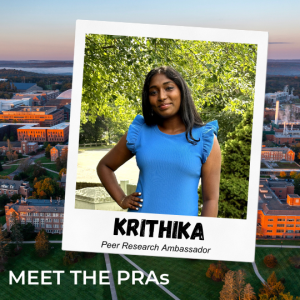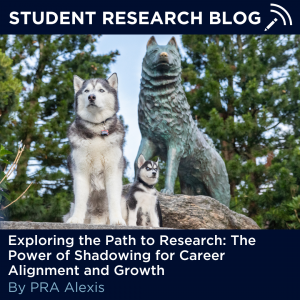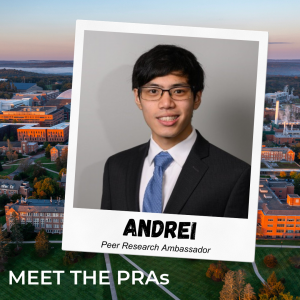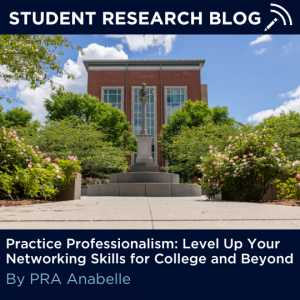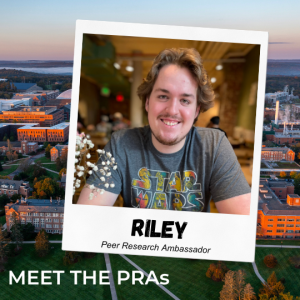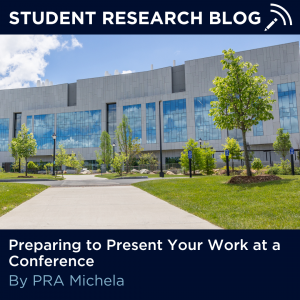By Mariam Vargas, Peer Research Ambassador
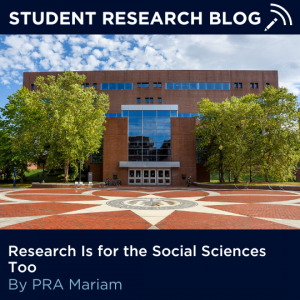 When people think about research, they often picture scientists in lab coats conducting experiments in high-tech labs. I’ve lost count of how many times STEM majors have told me they were surprised I was doing research. But here’s the thing—the “science” in Political Science is not just a placeholder. Research isn’t confined to the natural sciences; it’s just as vital in the social sciences. At its core, research in the social sciences helps us understand human behavior, society, and the systems that govern our lives. This work doesn’t require microscopes or petri dishes. It demands curiosity, critical thinking, and a drive to uncover the “why” behind the way our world works.
When people think about research, they often picture scientists in lab coats conducting experiments in high-tech labs. I’ve lost count of how many times STEM majors have told me they were surprised I was doing research. But here’s the thing—the “science” in Political Science is not just a placeholder. Research isn’t confined to the natural sciences; it’s just as vital in the social sciences. At its core, research in the social sciences helps us understand human behavior, society, and the systems that govern our lives. This work doesn’t require microscopes or petri dishes. It demands curiosity, critical thinking, and a drive to uncover the “why” behind the way our world works.
In the social sciences, research begins with a question. What factors drive political stability or instability in different countries? How do international norms influence state behavior in the global arena? What explains voter turnout patterns in key elections? These questions guide investigations that have the potential to inform policies, strengthen diplomatic efforts, and promote global justice. Social science research is everywhere. When you see predictions for voter turnout in an upcoming election, assessments of human rights compliance, or analyses of peace agreements, you’re seeing the power of social science research in action. Continue reading
